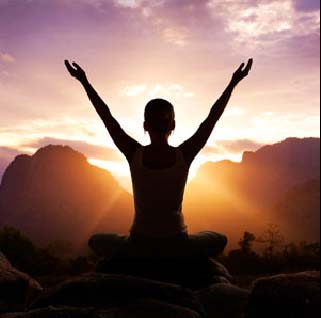Energy Therapy is a healing modality that falls under the domain of complementary or alternative medicine as designated by the National Center for Complementary and Alternative Medicine (NCCAM). The premise of energy healing is that a healer can transfer healing energy into a person by a hands-on or hands-off method. This transfer of energy can happen during a face-to-face visit as well as via distance.
There are different types of energy therapy such as magnet therapy, light therapy and qigong, but for the purposes of this article we will focus on Reiki, an energy therapy falls under the categories of Touch Therapy, Therapeutic Touch (TT) and Non-Contact Therapeutic Touch (NCTT) which has been shown to promote healing, relieve pain and anxiety.

Reiki was developed in 1922 by Japanese Buddhist Mikao Usui. “Reiki is a Japanese technique for stress reduction and relaxation that also promotes healing. It is administered by “laying on hands” and is based on the idea that an unseen “life force energy” flows through us and is what causes us to be alive”(reiki.org). There are many branches of Reiki but the more commonly used forms are known as Traditional Japanese Reiki and Westernized Reiki. Traditional Japanese Reiki is the original form of reiki as taught and used by Usui. Western reiki is accredited to Hawayo Takata, a Japanese-American who grew up in Hawaii. In the mid-1930’s, she traveled to Japan due to a medical crisis, which is when she learned of Reiki and brought it back to America.
Historically, reiki was used as a form of self-care however, it is being provided more and more by health care professionals in a number of different clinical settings. In a Reiki session, the client lies or sits comfortably, fully clothed. The practitioner’s hands are placed lightly on or just above the client’s body, palms down, using a series of varied hand positions which are held for a minutes, or until the flow of energy is felt. This feeling has been described as sensations of tingling and/or heat in the hands. Receivers of reiki have described feelings of tingling, warm and/or cool sensations, and sleepiness, as well as being in a state of total relaxation. The number of sessions received depends on the health needs of the client. Some of the benefits of Reiki include, stress relief, reducing high blood pressure, pain relief, raising the vibrational frequency of the body, removing energy blockages and more. If used in conjunction with other natural therapies such as meditation, homeopathy, etc. the affects of those therapies are then strengthened.

Reiki practitioners’ training and expertise varies but no special background is needed to receive training. However, Reiki must be learned from an experienced teacher known as a Reiki Master; it cannot be self-taught. Specific techniques taught can vary greatly but traditional Reiki has three degrees or levels, each focusing on a different aspect of practice. Each degree includes one or more attunements or empowerments which are believed to activate the ability to access Reiki energy. Training for first- and second-degree practice is typically given in 8 to 12 class hours over about 2 days. Some students seek master-level (third-degree) training but becoming a Master can take years.
Reiki healing is a natural and gentle form of therapy that promotes health for the whole being, mind, body and spirit. More detailed information can be obtained by visiting a Reiki practitioner and by browsing www.reiki.org.





